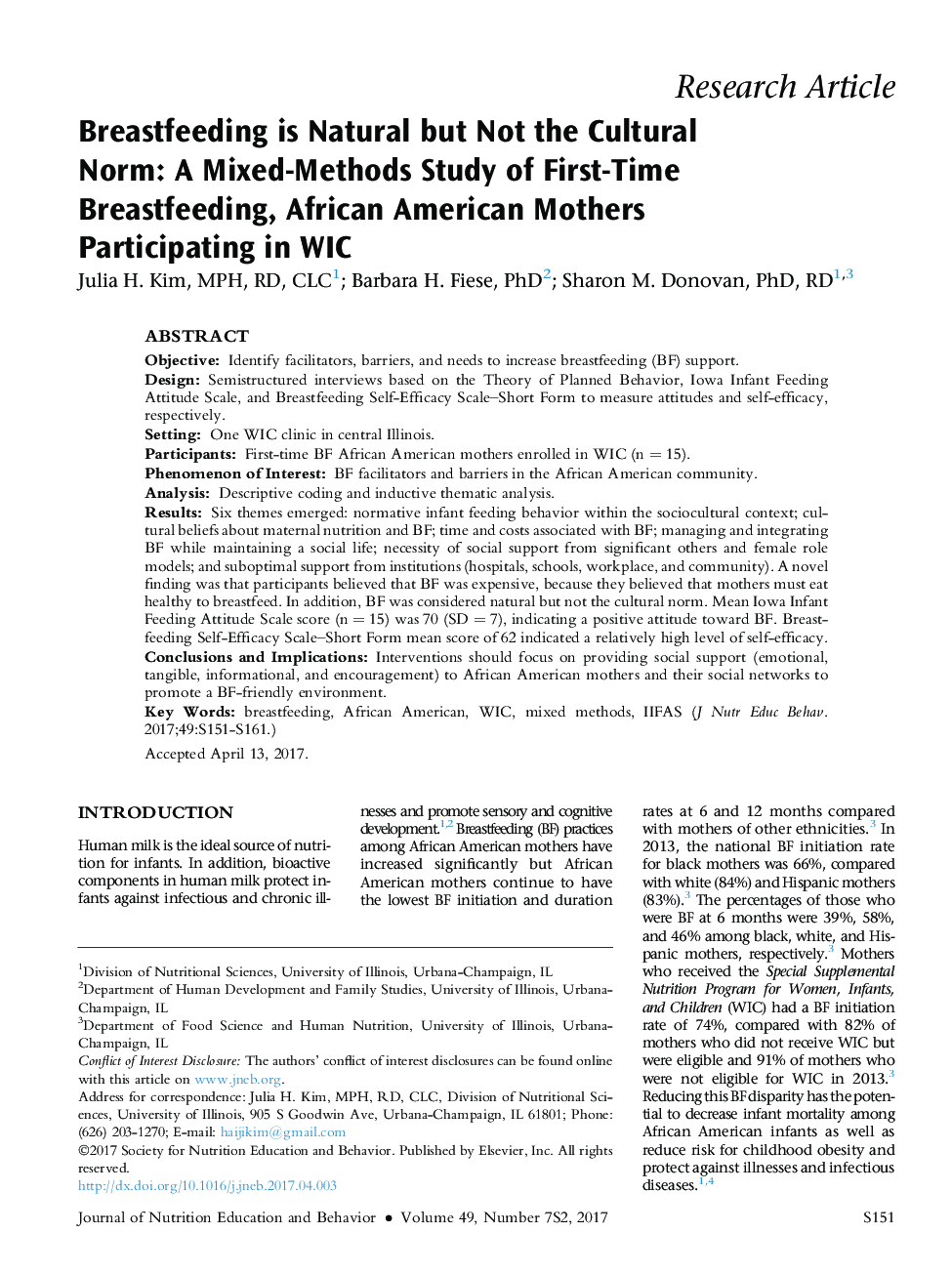| Article ID | Journal | Published Year | Pages | File Type |
|---|---|---|---|---|
| 4939364 | Journal of Nutrition Education and Behavior | 2017 | 12 Pages |
ObjectiveIdentify facilitators, barriers, and needs to increase breastfeeding (BF) support.DesignSemistructured interviews based on the Theory of Planned Behavior, Iowa Infant Feeding Attitude Scale, and Breastfeeding Self-Efficacy Scale-Short Form to measure attitudes and self-efficacy, respectively.SettingOne WIC clinic in central Illinois.ParticipantsFirst-time BF African American mothers enrolled in WIC (n = 15).Phenomenon of InterestBF facilitators and barriers in the African American community.AnalysisDescriptive coding and inductive thematic analysis.ResultsSix themes emerged: normative infant feeding behavior within the sociocultural context; cultural beliefs about maternal nutrition and BF; time and costs associated with BF; managing and integrating BF while maintaining a social life; necessity of social support from significant others and female role models; and suboptimal support from institutions (hospitals, schools, workplace, and community). A novel finding was that participants believed that BF was expensive, because they believed that mothers must eat healthy to breastfeed. In addition, BF was considered natural but not the cultural norm. Mean Iowa Infant Feeding Attitude Scale score (n = 15) was 70 (SD = 7), indicating a positive attitude toward BF. Breastfeeding Self-Efficacy Scale-Short Form mean score of 62 indicated a relatively high level of self-efficacy.Conclusions and ImplicationsInterventions should focus on providing social support (emotional, tangible, informational, and encouragement) to African American mothers and their social networks to promote a BF-friendly environment.
